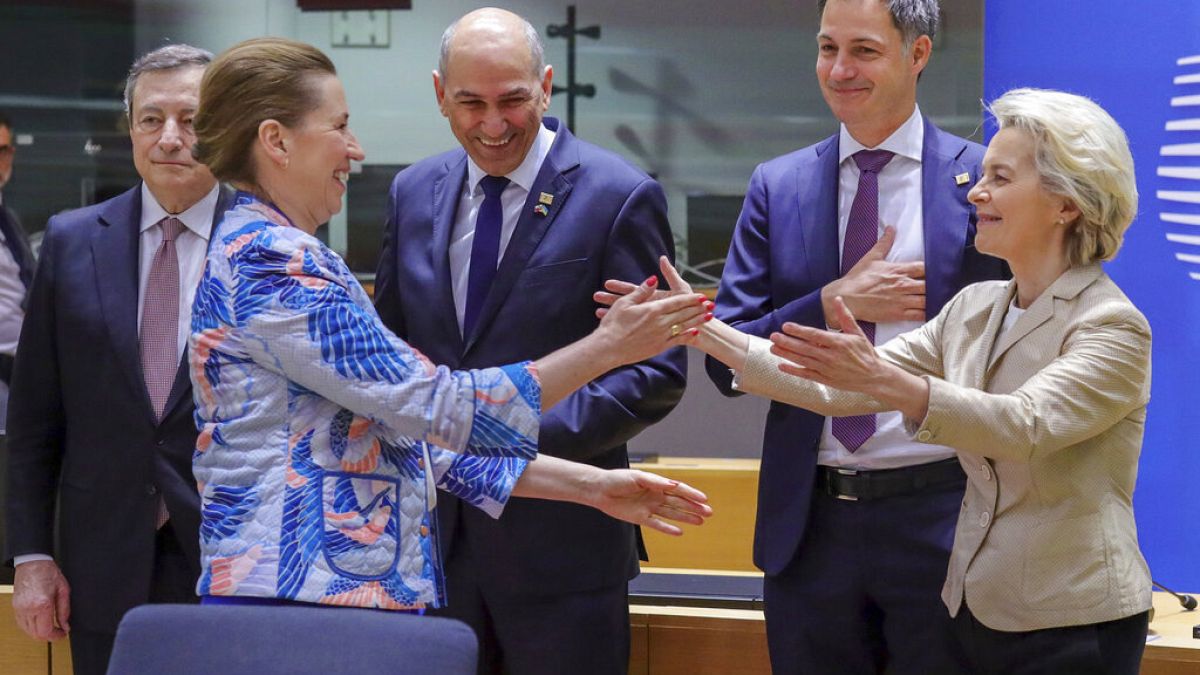In a historic referendum, 67 per cent of the Danish people voted in favour of scrapping the opt-out from EU security and defense policy after 30 years.
With the war in Ukraine entering its fourth month with no end in sight, the EU took sanctions against Russia into uncharted territory.
In a bold move expected to reverberate across global markets, the 27 member states agreed to phase out Russian oil, both crude and refined, by the end of the year.
The breakthrough followed almost four weeks of fraught negotiations that culminated in a high-stakes extraordinary summit in Brussels this week, where leaders gave in to a key demand vigorously advocated by Hungary's Viktor Orban: the total exemption of oil supplies flowing through pipelines.
Orban didn't miss the opportunity to claim a victory. "Families can sleep peacefully tonight," he announced. "The most dangerous idea has been defeated."
The Hungarian government also threw another spanner in the works, objecting to the inclusion of Patriarch Kirill, the head of Russia's Orthodox Church, in the latest package of EU sanctions against Moscow. Brussels accuses him supporting the invasion of Ukraine and acting as a propagandist for Vladimir Putin.
This is the sixth round of sanctions to be introduced by the EU against the Kremlin. Former Ukrainian president Petro Poroshenko has said in his view, a better solution would be to see Putin removed as president.
"We need to de-Putinise Russia," he told Euronews, "because Russia with Putin as the president can bring, at any moment, danger for the European continent."
"But we are talking about the democratic instruments. We are talking about sanctions. We are talking about an embargo. And the Russian people will hate the idea of paying these prices [in order] to have this maniac as a president."
Poroshenko was confident Ukraine would eventually join the EU. "I cannot find anybody who would be completely against our future membership," he said.
"We are a European country and the Ukrainian people have been fighting in a war since year 2014. We are fighting for our wish to be European, and hate the idea of returning to the Soviet Union or to the Russian Empire."
Danish referendum
Overall, Russia’s war has forced EU countries to rethink some of their strategic choices. After Finland and Sweden's bids to join NATO, it was Denmark's turn to rethink the country's opting-out of EU defense policy.
In a historic referendum, 67 per cent of the Danish people voted in favour of scrapping the opt-out from EU security and defense policy after 30 years.
“During a time where Putin has started a brutal war in Europe, a time where the world keeps getting more and more unsafe, today we show that Denmark is ready to lift a bigger responsibility," Danish Prime Minister Mette Frederiksen said. "For the world around us, for Europe.".
However, Finland and Sweden's NATO bids are being held hostage by another ally, Turkey, which accuses them of being safe havens for Kurdish militants and wants them to scrap arms export bans.
During his visit to the US, NATO Secretary-General Jens Stoltenberg said he would convene with senior officials from the three nations in Brussels to ensure progress be made ahead of this month's NATO summit.
That meeting in itself has been described by Stoltenberg as a “historic” opportunity in the face of Russian aggression: "We will agree on NATO’s next strategic concept, strengthen our deterrence and defense, and prepare for an age of increased strategic competition with authoritarian powers like Russia and China.
"This includes working even more closely with our partners in the Asia-Pacific and other like-minded partners around the world."
